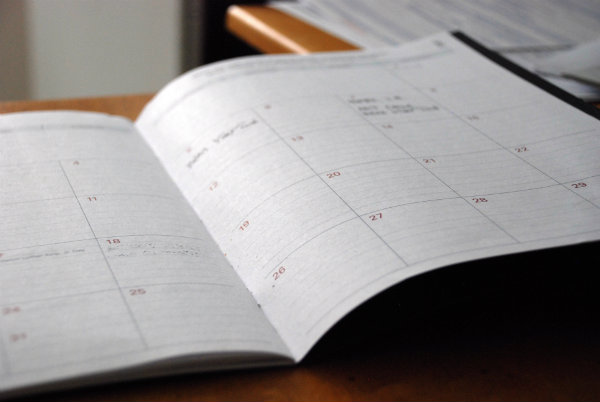
There comes a time in every homeowner’s life when he or she realizes: “I am not the same person I was when I bought this place.” Maybe your lifestyle or your family configuration has changed, or maybe the house just isn’t as appealing as it was when you signed that ream of paperwork on closing day.
If you’re thinking about moving on, then there are a few questions you need to ask yourself before you take the plunge and list the house. When you can answer these questions, you’ll know you’re in the right place emotionally and financially to move on to your next space.
What is my home worth?
You can find almost anything on the internet, and that includes an estimated value of your home. How convenient!
But before you go galloping off to Zillow or Redfin or even a brokerage website to try to figure out how much your house is worth, take a deep breath and resolve to remember one thing: “I shouldn’t believe everything I read on the internet.”
It’s possible that an automated estimate is going to be spot-on, but those algorithms depend on numbers that might or might not be accurate, like the condition of your property, the square footage, any features or amenities you’ve added (or removed), and recent sales of properties nearby that could be comparable to your own home. See my rant on Zillow’s ‘Cape Cod Metro Area’ here.
Two other seemingly objective sources to check: Your town’s assessed value, which is what they base your property taxes on (search ‘Assessors online database’ for your town), and also any recent bank appraisal you may have had done for the purpose of a home equity line or refinance. However, neither of these can give you a reliable analysis of what your home will most likely sell for in the current market. That number can only be divined by a professional who sells properties in your neighborhood every day.
That person can also explain what you can do to your home to help inch that number upward a little bit. Then you can make the call as to whether or not you want to make any upgrades or take the estimated price as-is. Which leads to the next question...
How can I sell at the highest price possible?
When you’re selling anything, you want to get fair market value for the item you’re releasing, and that’s exponentially truer for your house, which is probably the biggest purchase you’ve ever made.
If you know your neighbor’s house sold for more than the highest estimate you’ve been able to find for your own home, that can be a tough reality to swallow. But this is where real estate professionals really earn their keep -- they can explain why that house was so desirable (maybe if you’re honest with yourself, you can admit that your neighbor’s view is much nicer than yours, for example), and they can also show you where you do have some room for (price) improvement.
If you don’t want to call in a professional, then start with things that can spruce up almost any dwelling, and work your way in from the outside. Start with the yard: Did you know that the money you invest just in standard lawn care comes back to you over 300% (per 2016 NAR Remodeling Impact Report)? Then tend to things in this order: the exterior of the house, the kitchen, baths, living areas, bedrooms, and finally the basement/attic/garage areas. For each area prioritize activities like so: Repair or replace, declutter, deep clean, then stage.
Real estate agents also know stagers and home photographers. When a buyer falls in love with your home, it’s most likely going to be from an online listing, so your listing photos should be as high-quality as possible -- that might mean bringing in a stager to spruce up the rooms and a photographer to capture the results.

How long will my home be on the market?
No one can predict the future, but experts who work in the industry can usually come close. If you haven’t called an agent yet, you might need to in order to get the information you’ll need to answer this question.
Ultimately, it depends on what the housing market is like in your area, but there can be anomalies-- even in markets that seem red-hot, sometimes sellers make a mistake and overprice a home that then languishes for weeks or even months longer than more realistically priced homes. And there are some neighborhoods or even specific blocks where buyers seem to be willing to do just about anything to get their foot in the door.
The number of days that homes stay on the market gets shorter and shorter as housing heats up, but that number is absolutely contingent on the initial list price. Homes that end up reducing their prices to attract qualified buyers will remain on the market significantly longer than homes priced competitively from the start. It’s really important to get the initial list price right if you’d like the home to sell quickly. Like they say, you don’t get a second chance to make a first impression.
So even in markets where houses seem to be flying off the shelves, it’s smart to talk to someone who sees those sales up close and personal every day. They can give you an educated estimate about the amount of time it should take your property to get from list to close.
How can an agent help?

Selling a home is a huge life event that encroaches on just about every aspect of your existence, from your meals to your work schedule to how often you do laundry and vacuum up pet hair. It can be an incredibly stressful time, and a real estate agent is a personal advisor that can help sellers make the best decisions possible while keeping track of all the details.
A good real estate agent will help you find the best price for your home, list it for you on the MLS, and handle all the marketing -- from photos to open houses to glossy brochures to Facebook ads. A good agent can manage your showing schedule for buyers who want personal tours and can help you decide which offer to accept if you happen to receive more than one… and a good agent is absolutely essential during the negotiation process, especially if the buyer is making demands that the seller isn’t prepared to address.
A good agent will also know the best plumbers, electricians, and general contractors in the area who might be able to make any repairs or changes to the home before it closes. He or she can manage the transaction timeline, alerting you when an inspection or appraisal is about to happen and keeping you in the loop regarding financing and every other aspect of the deal.
A good agent can also help you do all of this while you’re simultaneously looking for a new place to live and can help you manage that, too -- including what to do if you find a home before your current house sells.
And depending on your personal situation, there are local real estate agents who specialize in divorce, estate sales, and other tricky life events that can happen around a home transaction.
Selling a home is not as simple as listing it on the MLS and waiting for an appropriate offer to come in--there’s so much more involved that most sellers can’t handle it on their own.
Answering these questions will get you a head start, but don’t skip talking to an agent (or two or three) when you’re actually ready to list that home; they’ll be able to point out what you didn’t know you were missing.








